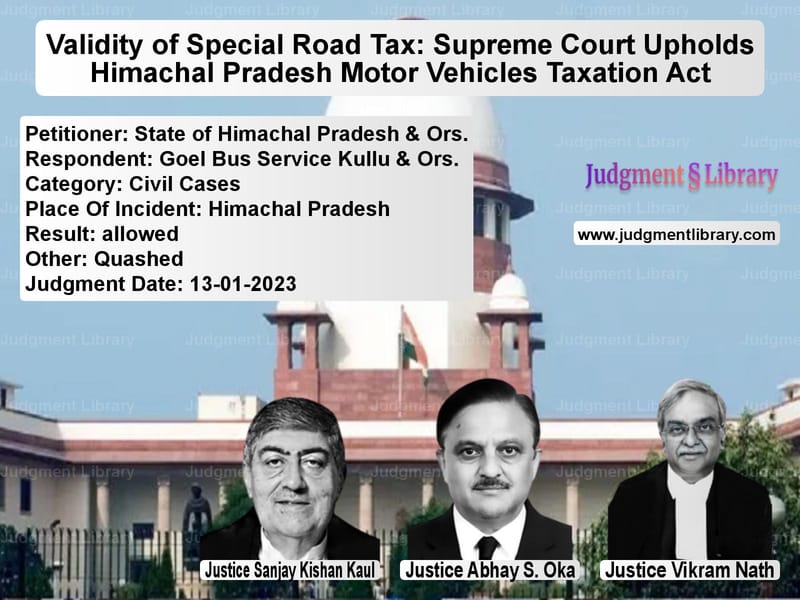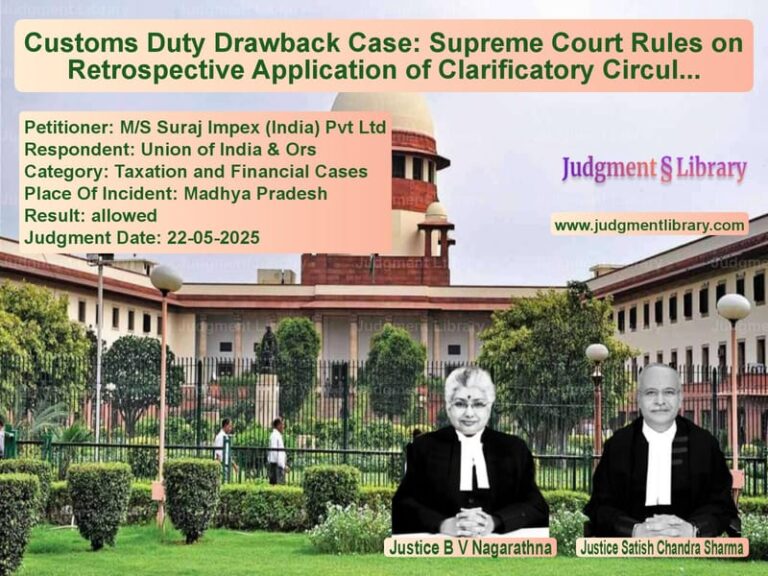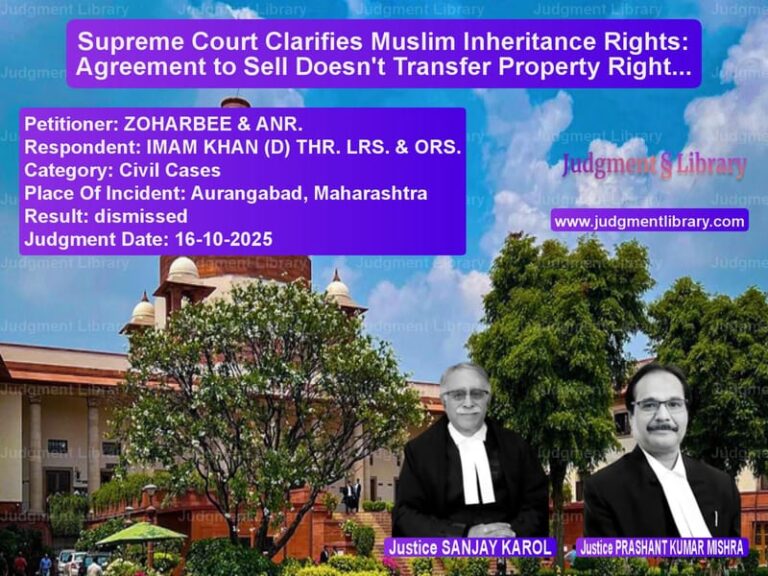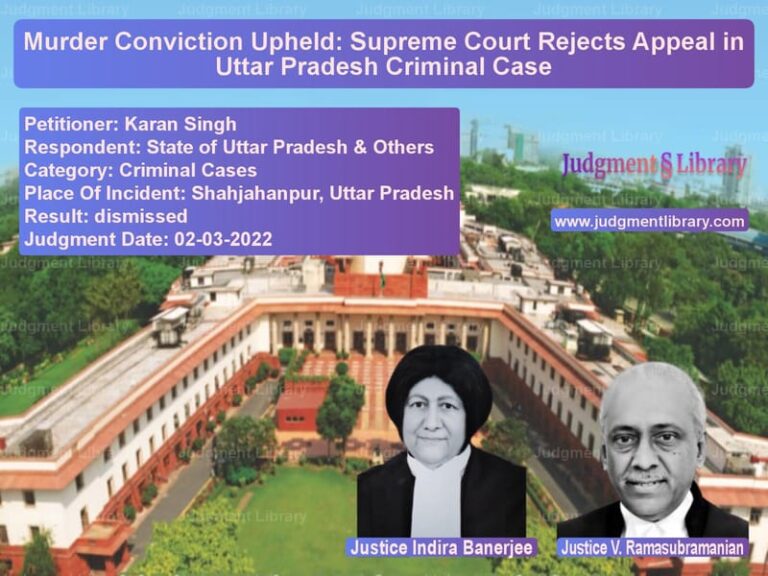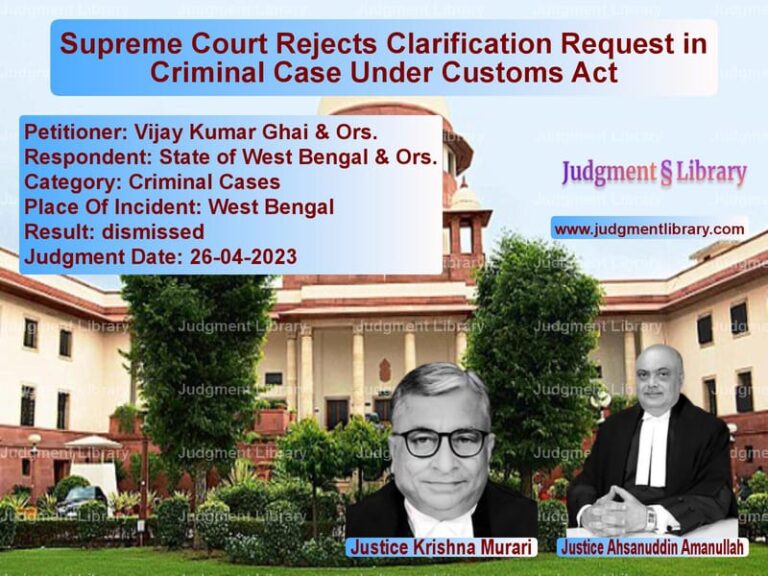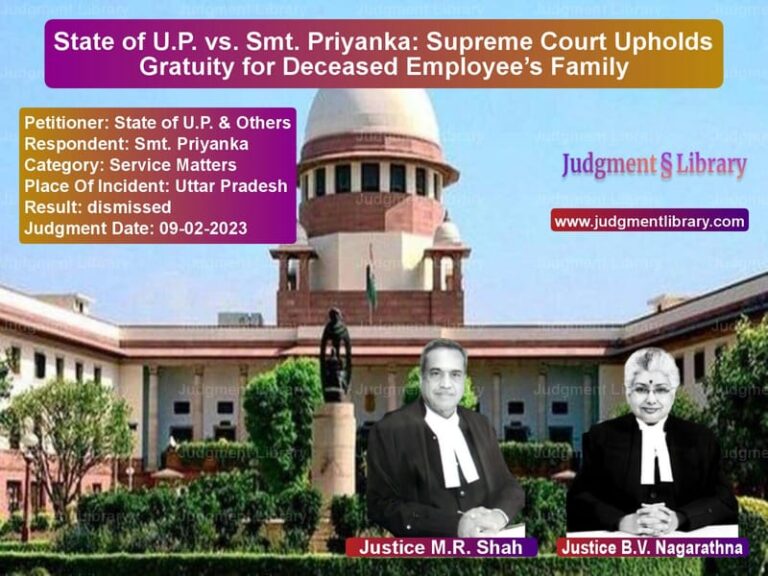Validity of Special Road Tax: Supreme Court Upholds Himachal Pradesh Motor Vehicles Taxation Act
The case of State of Himachal Pradesh & Ors. v. Goel Bus Service Kullu & Ors. involves a dispute over the validity of special road tax levied on transport vehicles under the Himachal Pradesh Motor Vehicles Taxation (Amendment) Act, 1999. The Supreme Court was called upon to determine whether the additional special road tax imposed on vehicles operating without valid permits constituted a regulatory or compensatory tax or an unconstitutional penalty.
Background of the Case
The dispute arose when multiple public transport operators challenged the constitutional validity of Sections 3-A, 3-C, 4-A, and 5-A of the Himachal Pradesh Motor Vehicles Taxation (Amendment) Act, 1999, along with notifications issued under these provisions. The key contention was that the special road tax was not a tax but a penalty for non-compliance with permit conditions and, therefore, beyond the legislative competence of the State.
The Himachal Pradesh High Court upheld the validity of most provisions but struck down Section 3-A(3) of the Act, holding that the levy was in the nature of a penalty and not a compensatory or regulatory tax. The State of Himachal Pradesh appealed to the Supreme Court against this ruling.
Legal Issues Considered
The Supreme Court examined the following key legal questions:
- Whether the special road tax imposed under Section 3-A(3) was a regulatory or compensatory tax or an unconstitutional penalty.
- Whether the State Legislature had the power to impose such a tax under Entries 56 and 57 of List II of the Seventh Schedule to the Constitution.
- Whether the levy of lump sum tax, as opposed to an individualized assessment, was legally valid.
- Whether the High Court erred in striking down the provision and related notifications.
Arguments by the Appellants (State of Himachal Pradesh)
The State of Himachal Pradesh contended that:
- The special road tax was compensatory in nature and intended to maintain roads and transport infrastructure.
- As a hilly state, Himachal Pradesh incurred high costs for road construction and maintenance, justifying the levy.
- The levy was designed to deter violations of permit conditions and regulate the transport sector.
- The power to impose such a tax was within the legislative competence of the State under Entries 56 and 57 of List II.
- Lump sum taxation had been upheld by the Supreme Court in previous cases.
Arguments by the Respondents (Transport Operators)
The respondents, who were private transport operators, argued that:
- The special road tax under Section 3-A(3) was not a tax but a penalty for violations, which could only be imposed under the Motor Vehicles Act, 1988.
- Taxes levied under Entries 56 and 57 of List II must be regulatory or compensatory in nature, and the impugned levy failed this test.
- The levy was arbitrary and imposed a financial burden without any direct link to road usage.
- The High Court correctly struck down the provision as unconstitutional.
Supreme Court’s Judgment
The Supreme Court ruled as follows:
- The special road tax under Section 3-A(3) is regulatory and compensatory in nature: The Court held that the levy was designed to ensure compliance with permit regulations and fund road maintenance.
- The State Legislature has the power to impose the tax: The Court found that the levy was within the State’s legislative competence under Entries 56 and 57 of List II.
- The tax is not an unconstitutional penalty: The Court distinguished the levy from a penalty, stating that it served a regulatory purpose.
- Lump sum taxation is valid: The Court upheld the imposition of lump sum tax, noting that it was an administratively efficient way to collect revenue.
- High Court’s ruling was incorrect: The Supreme Court overturned the High Court’s decision and upheld the validity of Section 3-A(3).
Analysis of the Judgment
This ruling reinforces the principle that states have the authority to impose taxes on motor vehicles for regulatory and compensatory purposes.
Implications for Transport Operators
- Operators must comply with permit conditions to avoid additional taxation.
- The ruling clarifies that special road tax is a valid regulatory measure.
- Operators cannot challenge the levy on the grounds that it is an unconstitutional penalty.
Implications for the Government
- State governments can impose regulatory taxes to fund road maintenance.
- The ruling provides legal backing for lump sum taxation in the transport sector.
- Legislative provisions imposing regulatory taxes will be upheld if they serve a clear compensatory purpose.
Implications for Future Cases
- The judgment sets a precedent for the validity of regulatory taxes on transport vehicles.
- It reinforces the distinction between penalties and regulatory taxation.
- Future challenges to similar levies will need to demonstrate that they are manifestly unjust or unconstitutional.
Conclusion
The Supreme Court’s judgment upholding the validity of special road tax under Section 3-A(3) of the Himachal Pradesh Motor Vehicles Taxation Act, 1999, establishes that state governments have the authority to impose such levies. The ruling affirms that regulatory and compensatory taxes serve a valid legislative purpose and are essential for maintaining transport infrastructure. This decision provides clarity on the scope of state taxation powers and ensures compliance with transport regulations.
Petitioner Name: State of Himachal Pradesh & Ors..Respondent Name: Goel Bus Service Kullu & Ors..Judgment By: Justice Sanjay Kishan Kaul, Justice Abhay S. Oka, Justice Vikram Nath.Place Of Incident: Himachal Pradesh.Judgment Date: 13-01-2023.
Don’t miss out on the full details! Download the complete judgment in PDF format below and gain valuable insights instantly!
Download Judgment: state-of-himachal-pr-vs-goel-bus-service-kul-supreme-court-of-india-judgment-dated-13-01-2023.pdf
Directly Download Judgment: Directly download this Judgment
See all petitions in Public Interest Litigation
See all petitions in Tax Refund Disputes
See all petitions in Banking Regulations
See all petitions in Judgment by Sanjay Kishan Kaul
See all petitions in Judgment by Abhay S. Oka
See all petitions in Judgment by Vikram Nath
See all petitions in allowed
See all petitions in Quashed
See all petitions in supreme court of India judgments January 2023
See all petitions in 2023 judgments
See all posts in Civil Cases Category
See all allowed petitions in Civil Cases Category
See all Dismissed petitions in Civil Cases Category
See all partially allowed petitions in Civil Cases Category

